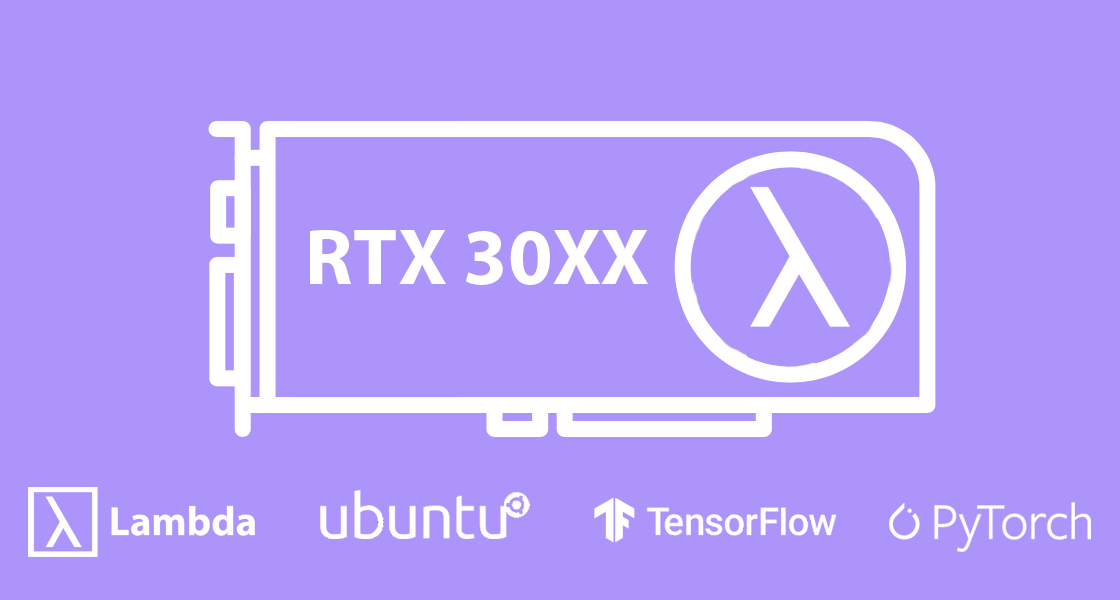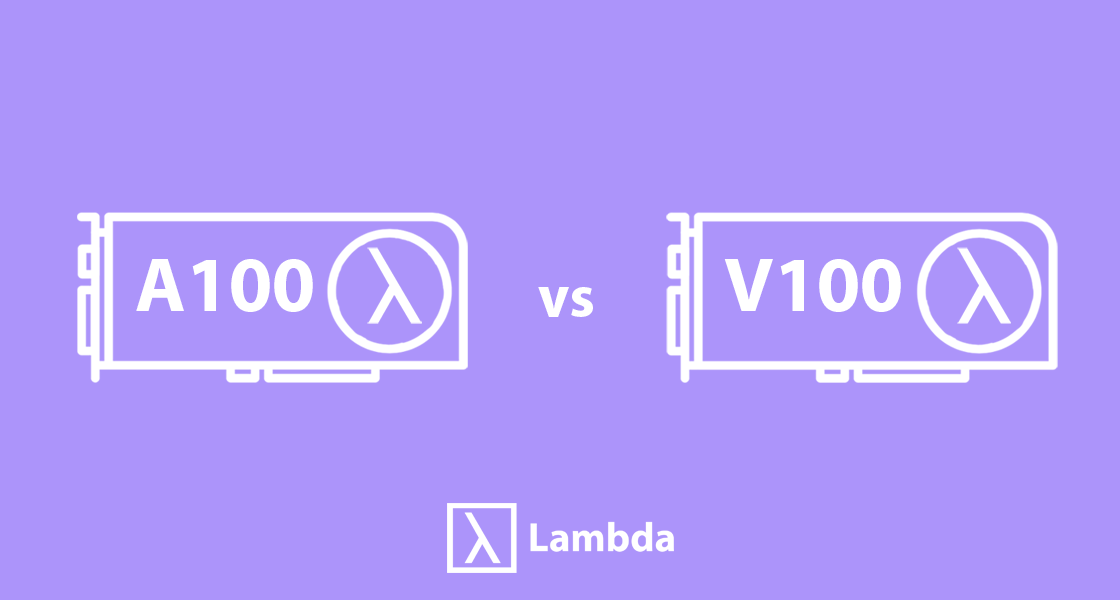
Install TensorFlow & PyTorch for the RTX 3090, 3080, 3070
This post shows you how to install TensorFlow & PyTorch (and all dependencies) in under 2 minutes using Lambda Stack, a freely available Ubuntu 20.04 APT ...

This post shows you how to install TensorFlow & PyTorch (and all dependencies) in under 2 minutes using Lambda Stack, a freely available Ubuntu 20.04 APT ...
Published on by Michael Balaban

Check out the discussion on Reddit 195 upvotes, 23 comments
Published on by Michael Balaban

Lambda is now shipping RTX A6000 workstations & servers. In this post, we benchmark the RTX A6000's PyTorch and TensorFlow training performance. We compare ...
Published on by Michael Balaban
Create a cloud account instantly to spin up GPUs today or contact us to secure a long-term contract for thousands of GPUs